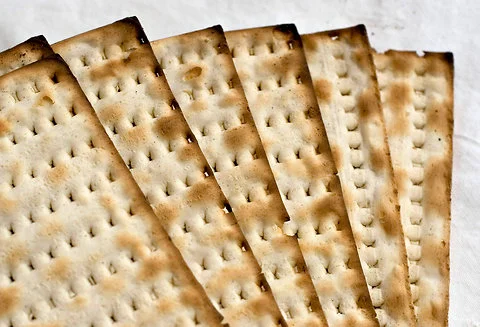The Pesach seder has helped to sustain our faith and reinforce our identity throughout the ages. Much of that has to do with the deliberate way that Chazal, our sages, set the seder up, with a variety of things for us to say and do that make the experience more powerful and inspiring. This article will look at three of those features and use psychology research to understand why they work and how we can use those same techniques to increase our happiness and wellbeing on all other nights, too.
Storytelling
The three seder features we will look at all serve the same basic purpose: to enhance the sipur, the telling of the story of yetziat Mitzrayim, the exodus. We can understand what that storytelling entails by contrasting it with the everyday mitzvah to simply remember the exodus (zechira). All a person has to do to fulfill that mitzvah of zechira is think for a moment about yetziat Mitzrayim. However, the storytelling (sipur) we are commanded to do at the seder is an entirely different matter. Chazal built a few things into the seder to make it a story fitting of the night of Pesach. At the seder, we relive the exodus. We imagine ourselves leaving Egypt and tell our families about it. We make it vivid with props like matzah and marror, and we express our thanks to Hashem for all that he's done for us.
If you've been to a Seder before, you know that each one of those features helps make the seder uplifting. With the help of research from the field of positive psychology, we can understand why they work. Positive psychology is a field that focuses on how ordinary people can become happier and more fulfilled. Researchers in the field have identified a number of things that happier people do that contribute to their being happy. They found that if other people do more of those things, they will also experience a boost in positive emotions and wellbeing. As it turns out, our three uplifting features of the seder each utilize one of those happiness-boosting techniques.
Reminiscing
At the seder we reminisce about yetziat Mitzrayim as a group, in a vivid, experiential way. The Gemara tells us that a person must see themselves as if they are presently leaving Egypt. When we use all of the visual and gustatory aids, we are helping to make our commemoration of that incredible event more vivid and more real, and consequently more powerful and uplifting of an experience.
Studies found that reminiscing about past events in one’s life helps people to create a cohesive sense of identity. It also helps people to savor positive moments, increase self-esteem, and overcome struggles in the present. Unlike remembering, reminiscing is active, and it is can be more effective when it’s done together with other people. Reminiscing is also enhanced by using objects like mementos that help bring back memories of the events. When a college student, for example, takes pictures and other items with them to put in their dorm room, those things help them to adjust to the new environment by helping them reminisce more clearly about their positive memories from home.
We can use reminiscing to enhance our own lives, too, by making time to remember positive events. Reminiscing is most effective when it’s done vividly, so try to remember as many details as you can about the event or use objects like mementos or photos. For events going forward, we can try to make positive events more memorable by being mindful as they are happening (i.e., not experiencing them through a camera lens and a phone screen).
Gratitude
Gratitude is one of the central emotions that the seder aims to arouse. The climax of sipur yetziat Mitzrayim is the hallel before and after shulchan orech. There, after describing all the good Hashem did for us, we turn to Him directly and express our gratitude to him. We can build internalize that feeling by singing the hallel and thinking about the meaning of the words. For many of us, that might require taking time before the seder to look over the translation, but it’s worth the investment.
Gratitude and happiness are closely connected. Dr. Robert Emmons demonstrated that performing even small acts of gratitude can have significant impact on the person’s emotional and physical wellbeing. Gratitude makes people more optimistic and happier, and improves our ability to connect with others. Gratitude also makes us more altruistic and it decreases materialism and envy.
One way to increase the level of gratitude in our own lives is by journaling. Simply write down a few things we are grateful for. This can be once a week, every few days, or every day. We can also express our gratitude for those things to G-d by mentioning in our tefilah. If that's not your thing, then try paying more attention to things other people do that you take for granted and go out off your way to acknowledge them.
Sharing Positive Experiences
We mentioned that our job on the seder night is to actually see ourselves as leaving Egypt right then. In fact, some have the custom of actually acting out leaving Egypt, with one participant asking the other “Where are you going?” and the other replying, “I am leaving Egypt.” If we can create that awareness, then the story we share is not simply our forefathers’, but our own. This can be an uplifting experience. In fact, any time someone shares good things that happen to them can be uplifting.
When things are tough, it's nice to be able to tell someone about it. But sharing the good things that happen to us can give us a boost of positive emotions. Dr. Nathan Lambert found that the more a person talks about the good things that are happening to the to people they are close with, the happier they feel and the more satisfied they are with life. Even within one particular day the more someone shares their happiness with someone else, the happier and more satisfied they will be on that day. In addition, when people shared positive things with someone else, and the other person listened with interest or excitement, that also improved the relationship between those people.
In our own lives, this is simple to do. You don’t have to brag or be insensitive, but don’t keep your joy to yourself. This doesn’t have to be about huge things. Finding the little things to share can be part of the exercise.
The sipur yetziat Mitzrayim that we do at the seder includes many features that enhance the experience, including vivid reminiscing, expressing gratitude, and sharing positive experiences. Each of those is something that can improve our emotional wellbeing and life satisfaction. If we are mindful and engaged in the seder, and our hearts are open to being moved by it, then the seder will be an uplifting and meaningful experience that we can carry with us throughout the year.

